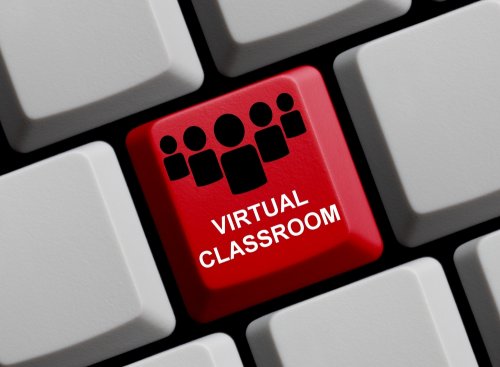Virtual Education: What You Should Know

Opting for virtual education over traditional schools is a growing trend. More and more parents are turning to technology-based institutions because of the advantages they offer. For example, a family that needs to relocate might often prefer an institution that doesn’t require their kids to start over somewhere new.
“An influential factor in distance education is Information and Communication Technology. Remote communication is achieved through technological means, and the students develop a greater sense of independence, self-regulation, discipline and study habits, as they are responsible for getting the most out of their education.”
– Ferroni and Velásquez (cited by César Augusto Sierra)
When considering virtual education, we need to find schools that are approved by each country’s Department of Education. The study plans need to be examined by the government to ensure they meet the standards and requirements set for traditional public and private schools.
Advantages of virtual education
1. Flexibility
With virtual education, students and their families have the chance to choose the most convenient schedules. The school years usually have the same duration and calendars as traditional schools, but the timetables can vary. There is often the option of consulting with a tutor at any time, or accessing the class recordings.
2. Free time
In traditional schools, children spend approximately eight hours of their day on school activities. Specifically, classes, recess, commuting and extracurricular activities take up the vast majority of their time.

Meanwhile, with virtual classrooms there are only about five to six sessions a day. In addition, there is the option of advancing ahead in subjects where the student is performing well.
3. The cost of virtual education
Contrary to what many might believe, virtual education is in many ways cheaper. Families can save on the amounts spent on transportation and certain aspects of traditional schooling. You need to make an initial investment in a good computer, headphones, a microphone and the relevant study materials.
4. Multimedia resources
It’s no secret that today’s kids have a special affinity for technology. The ability to access interactive learning resources, animations and learning spaces similar to social networks can be a great source of motivation.
5. Developing independence
When children become more involved with and responsible for their own education, they develop qualities like discipline and independence. They can also spend more time on the subjects they find challenging and less time on the subjects they find easier. This way, students can learn at their own pace.
Disadvantages of virtual education
- Those who oppose this form of education argue that it lacks social interaction. Although there are group activities attended via platforms, human contact doesn’t play much of a role.
- Technological failures can hinder the educational process in a virtual environment. If you don’t have access to a good computer or a fast internet connection, then it will be difficult to follow the coursework as intended.
- All students are different. Some require more support and motivation from their teachers and peers. In addition, those who have difficulties concentrating and managing their time will find many distractions at home.
- There are virtual institutions that aren’t endorsed by the proper regulatory organizations. If you choose one of these schools, there may be issues in terms of validating the degree or degrees attained by the student.

Virtual education is responding to a demand from today’s society. As a result, more and more people are opting for this educational model.
Despite its many advantages, it’s not for everyone. Before settling on this form of schooling, you need to evaluate which strategies you think will be most effective with your child.
All cited sources were thoroughly reviewed by our team to ensure their quality, reliability, currency, and validity. The bibliography of this article was considered reliable and of academic or scientific accuracy.
- Ossa, G. C. (2002). Tendencias educativas para el siglo XXI. Educación virtual, online y@ learning. Elementos para la discusión. Edutec. Revista electrónica de tecnología educativa, (15), a025-a025. http://edutec.es/revista/index.php/edutec-e/article/download/542/276
- Rosario, J. (2005). La Tecnología de la Información y la Comunicación (TIC). Su uso como Herramienta para el Fortalecimiento y el Desarrollo de la Educación Virtual. Disponible en Observatorio para la CiberSociedad en http://www. cibersociedad. net/archivo/articulo. php.
- Tellería, M. B. (2004). Educación y nuevas tecnologías. Educación a Distancia y Educación Virtual. Revista de Teoría y Didáctica de las Ciencias Sociales, (9), 209-222. https://www.redalyc.org/pdf/652/65200912.pdf
- Varón, C. A. S. (2013). La educación virtual como favorecedora del aprendizaje autónomo. Revista Panorama, 5(9). https://journal.poligran.edu.co/index.php/panorama/article/view/37/0